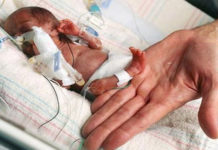Hot flashes, one of the most common symptoms of menopause, have already been shown to interfere with a woman’s overall quality of life. A new study shows that, particularly for younger midlife women (age 40-53 years), frequent hot flashes may also signal emerging vascular dysfunction that can lead to heart disease.
The study outcomes are published in the journal of The North American Menopause Society (NAMS).
A hot flash, sometimes called a hot flush, is a quick feeling of heat and sometimes a red, flushed face and sweating. The exact cause of hot flashes is not known, but may be related to changes in circulation. Hot flashes happen when the blood vessels near the skin’s surface dilate to cool.
Hot flashes are one of the most common side effects of menopause. These are periods of intense heat, warm skin and excessive sweating can be really uncomfortable.According to a new study, published in the journal Menopause,hot flashes in pre-menopausal women may be a sign of heart.
The study involving 272 nonsmoking women aged 40 to 60 years is the first to test the relationship between physiologically assessed hot flashes and endothelial cell (the inner lining of the blood vessels) function.
The effect of hot flashes on the ability of blood vessels to dilate was documented only in the younger tertile of women in the sample.
There was no association observed in the older women (age 54-60 years), indicating that early occurring hot flashes may be those most relevant to heart disease risk. The associations were independent of other heart disease risk factors.
Cardiovascular disease is the leading cause of death in women.Hot flashes are reported by 70% of women, with approximately one-third of them describing them as frequent or severe. Newer data indicate that hot flashes often start earlier than previously thought, possibly during the late reproductive years,and persist for a decade or more.
“Hot flashes are not just a nuisance. They have been linked to cardiovascular, bone, and brain health,” says Dr. JoAnn Pinkerton, executive director of NAMS. “In this study, physiologically measured hot flashes appear linked to cardiovascular changes occurring early during the menopause transition.”


























